| Article ID | Journal | Published Year | Pages | File Type |
|---|---|---|---|---|
| 2011721 | Pharmacological Reports | 2012 | 8 Pages |
Caffeine is the psychostimulant substance consumed in greatest quantities in the world. The repeated administration of psychostimulants can either decrease or increase the drug effect, inducing tolerance or sensitization, respectively, depending on administration procedure. Not only the dose and regimen, but also the environment where drug is administered, seem to modulate the changes in locomotor activity following repeated psychostimulant administration. The purpose of the present study was to examine the influence of the environmental context on caffeine-induced psychomotor stimulation following repeated administration of this drug. Our results showed that repeated caffeine induced psychomotor sensitization when drug injections were paired with the environment in which the animals were subsequently tested, whereas tolerance occurred when the animals received repeated caffeine in an environment different from that where the tests were performed. In conclusion, the present results demonstrated that the environmental context where caffeine is administered is a key factor modulating the adaptations of the organism to drug effects.
